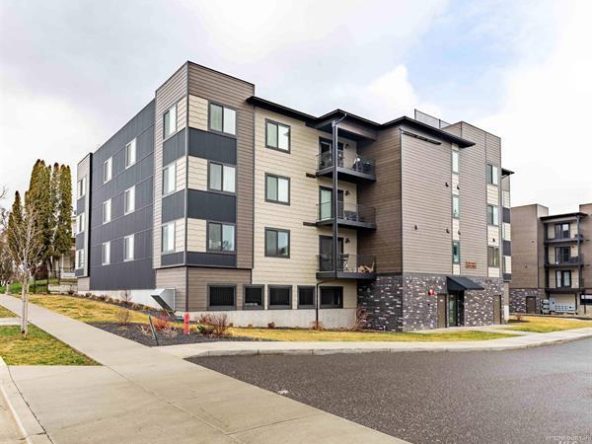One of the first steps to buying a home is securing a loan or mortgage, and there is a difference between the two! A mortgage is a type of loan.
According to ROCKET Loans, “When you take out a loan, you receive money in exchange for future repayments of its value, the principle amount, along with any interest or finance charges.”
A mortgage is a type of loan taken out specifically to purchase a house. Personal loans can be used for almost anything, whether it is a home project, a vacation, or a new car. Mortgages have a loan term of anywhere from 8 to 30 years, whereas personal loan terms typically do not last longer than 7 years, 3 to 5 years being the most common.
Technically, you could use a personal loan to purchase a house, but the monthly payment and interest rate is likely to be much higher than if you opt to use a mortgage.
The first step to getting a mortgage is to do some research about the options in your area or remotely. Once you have an idea of what lender you might want to work with, the next step is to apply for a mortgage.
Types of Loans
When applying for a loan, it is good to know what options are available. Here are the different types of loan options that may be available to you:
Conventional Mortgage
These are loans that are not backed by the federal government. According to Investopedia, “Borrowers with good credit, stable employment and income histories, and the ability to make a 3% down payment can usually qualify for a conventional loan backed by Fannie Mae or Freddie Mac, two government-sponsored enterprises that buy or sell most conventional mortgages in the United States.” These mortgages are typically either a 15-year loan term or a 30-year loan term, and you can determine which may be a better option for you by looking into the monthly payment and interest rates depending on your credit, what your lender can offer you.
Federal Housing Administration Loan (FHA)
This type of mortgage is insured by the Federal Housing Administration. These are an option for low-to-moderate income borrowers. The minimum FHA down payment is 3.5%, and they are available to buyers with lower credit scores and/or higher debt to income ratios. One caveat with this type of loan is that mortgage insurance and premium payments made to the FHA are often required, and this may leave you with higher monthly payments.
To learn more about FHA loans, click here.
Veteran Affairs Loan (VA)
This type of mortgage is backed by the U.S. Department of Veterans Affairs (VA). The only borrowers eligible for this type of loan are qualified U.S. veterans, active-duty military personnel and sometimes surviving spouses. “Your length of service or service commitment, duty status and character of service determine your eligibility for specific home loan benefits” (U.S. Department of Veterans Affairs).
To learn more about VA loans, click here.
Department of Agriculture Loan (USDA)
USDA loans are guaranteed by the U.S. Department of Agriculture. This type of mortgage does not require a down payment for eligible borrowers living in rural areas. This type of loan was created to, “improve the economy and quality of life in rural America” (Nerd Wallet).
To learn more about USDA loans, click here.
Jumbo Loan
A jumbo loan is, “a type of financing that exceeds the limits set by the Federal Housing Finance Agency and cannot be purchased, guaranteed, or securitized by Fannie Mae or Freddie Man” (Investopedia). These loans are for higher amounts and have many more credit requirements than other types of loans. For example, your credit score must be at least 700 or higher, and you must have a very low debt-to-income ratio. You will also likely have to prove you have the cash needed to make monthly payments.
Fixed Rate vs. Adjustable Rate
Along with knowing the types of loans that may be available to you or that you qualify for, it is important to know how interest rates can vary depending on the type of loan you have.
Fixed rate mortgages do not increase or decrease the interest amount during the loan term.
Adjustable-rate mortgages (ARM) are set below the current market rate initially and increase (or decrease) over time.
What Can You Afford?
Once you have a better understanding of how loans and mortgages work and what options may be available, the next step is knowing what you can afford.
Popular finance advisor and author, Dave Ramsey, cautions borrowers against being “house poor.” It might be easy to forget that there are a lot of costs that can come with owning a house, including repairs that might come up. Sometimes repairs are not a quick fix and it will be essential to have extra money on hand when the need arises. Ramsey says, “If you can’t pay the mortgage each month or find the cash to fix what’s broken, your home will be a burden- not a blessing!”
Ramsey recommends adding up your total monthly income, multiplying it by 25% to get your maximum mortgage payment, and then using a mortgage calculator to determine your budget.
There are many other ways to determine what you can afford, here is another great resource based on your location.
What is a Promissory Note?
Once you are approved for a loan, you may have to sign promissory note. This is essentially a written promise by one party to pay another party a specific sum of money. This note includes all the details about the debt. This can include the interest rate, principal amount, date, and time the loan was issued, and signatures between the parties.
What is Underwriting?
This is a process where an individual or institution evaluates the risk of giving you a loan based on other factors such as debt-to-income, savings, if bills were paid on time and previous bank statements. Any time a buyer obtains a loan, it must go through the underwriting process to receive the final approval to move forward with a purchase. Underwriters access the degree of risk the buyer is based on their credit and debt to income ratios, and more.
Click here to learn more about underwriting.
The Bottom Line
The good news is that there are many options available to potential homebuyers! Speaking to a real estate agent can help you review your options and decide which one is best for you.
Call Latah Realty today at 208-883-1525 to speak to a one of our fantastic agents!




